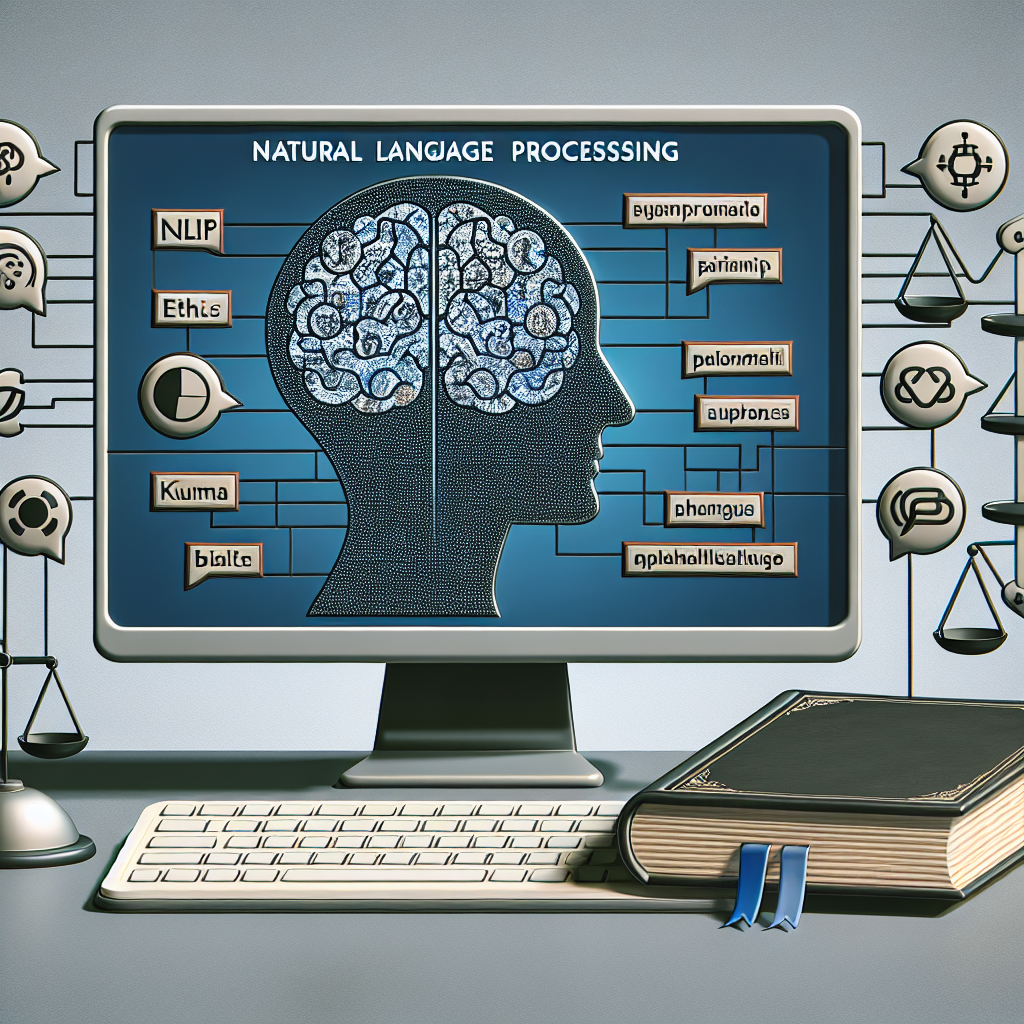Natural Language Processing (NLP) is a rapidly advancing field of artificial intelligence that focuses on the interaction between computers and human language. NLP technology enables computers to understand, interpret, and generate human language in a way that is valuable for a wide range of applications, from chatbots to language translation to sentiment analysis.
While NLP has the potential to revolutionize the way we interact with technology, it also raises important ethical implications that must be carefully considered. In this article, we will explore some of the key ethical considerations surrounding NLP and discuss how they can be addressed.
Privacy and Data Security
One of the primary ethical concerns surrounding NLP is privacy and data security. NLP technology relies on vast amounts of data to train machine learning models and improve their performance. This data often includes sensitive information about individuals, such as their personal communications, social media posts, and browsing history.
There is a risk that this data could be misused or compromised, leading to privacy violations and security breaches. For example, if a company’s NLP system is hacked, an attacker could gain access to confidential customer data and use it for malicious purposes.
To address these concerns, organizations that develop and deploy NLP technology must take steps to safeguard the privacy and security of user data. This includes implementing strong encryption measures, access controls, and data anonymization techniques to protect sensitive information from unauthorized access.
Bias and Discrimination
Another ethical issue associated with NLP is bias and discrimination. NLP models are trained on large datasets that may contain biases and stereotypes, reflecting the social and cultural biases of the individuals who created the data. As a result, NLP systems can inadvertently perpetuate and amplify biases in their language processing tasks.
For example, a language model trained on biased text data may generate biased outputs, such as gendered or racially discriminatory language. This can have harmful consequences, reinforcing existing stereotypes and perpetuating discrimination in society.
To address bias and discrimination in NLP, researchers and developers must prioritize fairness and transparency in their algorithms. This includes conducting bias audits, analyzing the impact of their models on different demographic groups, and implementing mitigation strategies to reduce bias in their systems.
Transparency and Accountability
Transparency and accountability are also important ethical considerations in NLP. As NLP technology becomes increasingly integrated into our daily lives, it is crucial that users understand how these systems work and how their data is being used.
However, many NLP models are complex and opaque, making it difficult for users to understand their inner workings. This lack of transparency can lead to distrust and confusion among users, who may be unaware of the risks and limitations of NLP technology.
To promote transparency and accountability in NLP, developers should strive to make their models more interpretable and explainable. This includes providing clear documentation, explanations, and visualizations of how their models make decisions, as well as implementing mechanisms for users to challenge and appeal automated decisions.
Informed Consent and User Control
Informed consent and user control are essential principles of ethical AI, including NLP. Users should have the right to know how their data is being collected, processed, and used by NLP systems, and to give their explicit consent for these activities.
Additionally, users should have the ability to control and manage their data in NLP systems, including the right to access, correct, or delete their information as needed. This empowers users to make informed decisions about their privacy and data usage, and ensures that they have agency over their personal information.
To uphold informed consent and user control in NLP, developers should implement robust data governance policies and practices that prioritize user privacy and autonomy. This includes obtaining explicit consent from users before collecting their data, providing clear opt-in/opt-out mechanisms, and enabling users to manage their data preferences easily.
FAQs
Q: How can bias in NLP models be detected and mitigated?
A: Bias in NLP models can be detected and mitigated through a variety of techniques, including bias audits, fairness assessments, and bias mitigation strategies. These methods involve analyzing the output of NLP models for bias, identifying problematic patterns, and implementing measures to reduce bias in the training data and algorithms.
Q: What are some examples of bias in NLP?
A: Examples of bias in NLP include gender bias, racial bias, and cultural bias. For instance, a language model that is trained on biased text data may exhibit gendered language stereotypes or racial discrimination in its outputs. Bias can manifest in various ways, such as in language generation, sentiment analysis, and language translation tasks.
Q: How can organizations promote transparency and accountability in their NLP systems?
A: Organizations can promote transparency and accountability in their NLP systems by providing clear documentation, explanations, and visualizations of how their models work. They can also implement mechanisms for users to understand and challenge automated decisions, as well as adhere to ethical guidelines and standards in their development and deployment of NLP technology.
Q: What are some best practices for ensuring privacy and data security in NLP?
A: Best practices for ensuring privacy and data security in NLP include implementing strong encryption measures, access controls, and data anonymization techniques to protect sensitive information. Organizations should also prioritize data minimization, data transparency, and data governance to safeguard user privacy and prevent security breaches.
In conclusion, NLP technology holds great promise for transforming the way we communicate and interact with technology. However, it also raises important ethical considerations that must be addressed to ensure that NLP systems are developed and deployed responsibly. By prioritizing privacy, fairness, transparency, and user control in NLP, organizations can build trust and confidence in their technology and promote ethical practices in the field of artificial intelligence.

